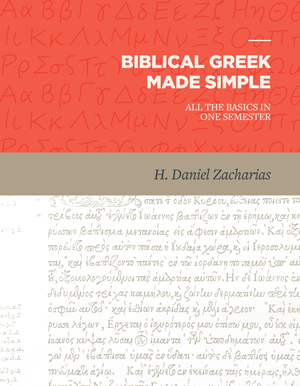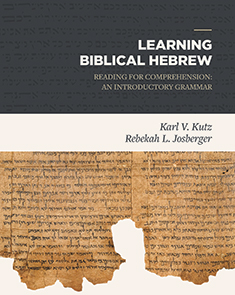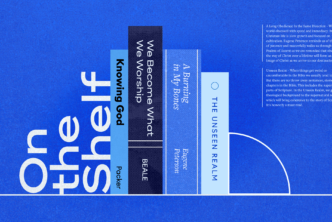The road to learning biblical Greek and Hebrew is a journey of moving from alphabets and words to fluid reading and interpretation—and sometimes, it can feel like climbing a mountain just to reach another false summit.
This post is for anyone who’s about to climb or has fallen off midway.
Those who’ve reached the top—who have done the hard work of gaining enough familiarity with the original languages to discover gold they couldn’t have otherwise—will tell you the trudge is worth it.
So here are six resources to help you on your way of learning biblical Greek and Hebrew.
Three are books meant for beginners or anyone needing a refresher, and three are articles about the wonders and pitfalls of original language studies.
Books
These are all part of the Lexham Original Languages Suite, which contains two Greek grammars and one Hebrew grammar.
An Introduction to Biblical Greek: A Grammar with Exercises, by John D. Schwandt
Schwandt’s approach integrates the rigor of a classic Greek grammar with the fruit of contemporary language learning. The result is a one-stop introduction to New Testament Greek that is both academically sound and student friendly.

Zacharias’ grammar is designed with modern students in mind. It fully integrates with Logos Bible Software and other digital tools and is also condensed into one semester rather than two.

What’s the best way to learn a new language? By approaching it not as a series of facts to memorize but as something alive, with a personality you can get to know and tendencies you can begin to predict.
Designed for long-term retention, this grammar shows how the language works and gives students a solid grounding in Hebrew through extensive reading in the biblical text.
Learn more about all three grammars.
Articles
These articles are pulled from Mark Ward’s wonderfully helpful output of articles on language studies. Though they speak of Greek specifically, the principles apply to Hebrew as well.
I’ve chosen them not because they will teach you Greek and Hebrew, but because they will teach you how to learn Greek and Hebrew—that is, the posture and commitments to maintain from first step to final approach.
5 Reasons Studying Greek Is Worth the Pain
Let’s start with motivation. This post offers five benefits of studying the original languages.
3 Reasons to Study Greek, 3 Reasons Not To
The heart matters, even when it comes to learning diphthongs and vowel marks. This post asks you to consider your motivations in pursuing original language knowledge.
Good and Bad Goals for Studying New Testament Greek
This one gets more practical. Setting the right goals—goals that are neither too high nor too low—is critical for maintaining motivation and making your efforts worthwhile.
There you have it: three grammars to get you on your way (or back on the path), and three articles to guide your heart, mind, and ministry.
***
Ready to get going? Browse the Lexham Original Languages Suite.
Related resources
- Biblical Greek Foundational Certificate Program
- Basics of Biblical Greek (Workbook) by William D. Mounce
- Basics of Biblical Greek (Video lectures)
- Reading Biblical Greek (Video lectures) by Constantine R. Campbell
- Faithlife Greek Grammar Onthology






